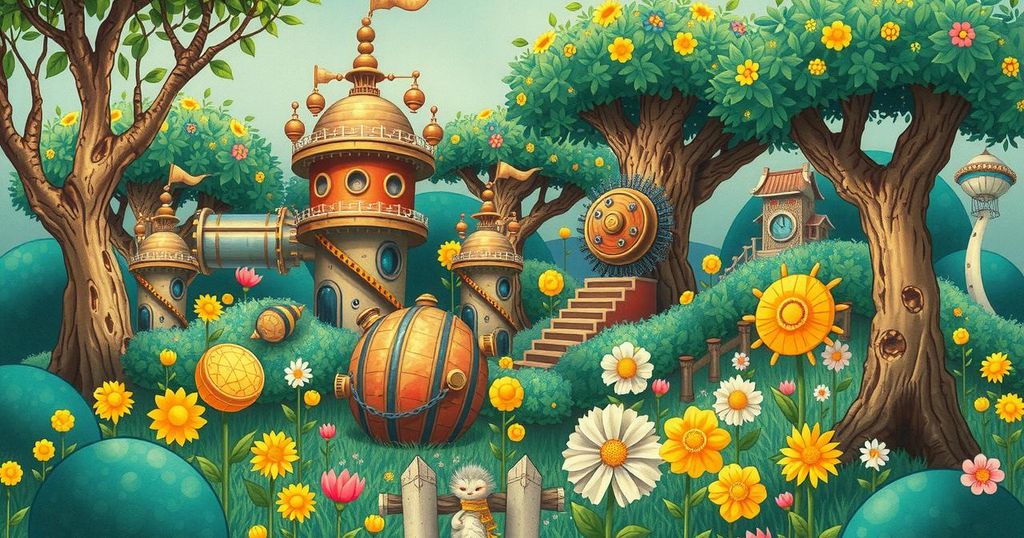AI’s Rise in Japanese Animation: The Irreplaceable Legacy of Ghibli
Goro Miyazaki of Studio Ghibli warns that AI could eventually replace anime artists but emphasizes that the creative touch of his father, Hayao Miyazaki, remains unique and irreplaceable. With the animation industry facing challenges and the emergence of AI-generated content, questions arise about the future of traditional anime artistry and audience reception. Despite these advancements, the rich narrative and emotional layers in Ghibli films derive from experiences that technology cannot replicate.
As artificial intelligence advances, predictions state that it may one day supplant Japanese anime artists, claims Goro Miyazaki of Studio Ghibli. He stressed, however, that nothing could replicate the artistic essence of his father, Hayao Miyazaki, known for masterpieces like “Spirited Away.” Features such as “My Neighbor Totoro” reflect a unique style of painstakingly hand-drawn animation, setting a benchmark AI may struggle to achieve.
In a recent interview, Goro forecasted the potential for a completely AI-generated film within the next two years, sparking a debate on whether audiences would embrace such innovations. As the landscape of animation evolves, he recognized the promising potential for new talents to emerge in this digital age. Goro spoke from the heart of the Ghibli atelier, just as OpenAI unveiled its latest image generator.
Japan’s animation industry faces a pressing shortage of skilled artists, driven by long hours of low pay that dissuade newcomers. Goro noted that tech-savvy younger generations might find the demanding, traditional artistry less appealing. With instant access to entertainment, they may struggle to envision a sustainable career rooted in manual labor.
The esteemed Studio Ghibli, founded by Hayao and Isao Takahata in 1985, grapples with envisioning its future without its iconic founders. Goro pondered, “If those two can’t… move, then what happens? It’s not like they can be replaced.” Despite his age, Hayao remarkably secured his second Oscar last year, underscoring his lasting impact on the genre.
While anime is often associated with children, Goro emphasized that the storytelling depth found in their films resonates with adults, intertwining joy with darker, poignant themes reflecting life’s complexities. He argued that younger generations, devoid of wartime experiences, may struggle to conjure the narrative richness characteristic of their legacy.
As AI-generated images flood the internet, a resurfaced clip from 2016 showcased Hayao’s skepticism towards the technology, wherein he remarked, “I strongly feel that this is an insult to life itself” in reaction to an AI graphic. Goro, involved with the studio since 1998, has contributed significantly to its projects while acknowledging the daunting creative lineage he comes from, often feeling he couldn’t match his father and Takahata’s talents.
The conversation around AI’s potential in replacing anime artists brings forth both hope and anxiety. While Goro Miyazaki acknowledges the innovative possibilities AI presents, he remains firm in declaring that the artistry of his father, Hayao Miyazaki, is irreplaceable. As the landscape of animation shifts, the emotional depth and experience from previous generations continue to create a unique allure that technology cannot mimic.
Original Source: www.digitaljournal.com




Post Comment